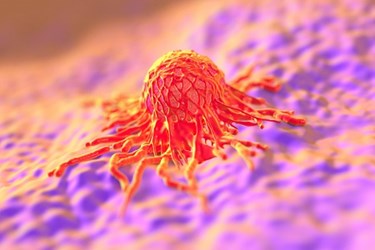BPI Keynote Discusses Innovative Processes To Support Immunotherapy Revolution

By Trisha Gladd, Editor, Life Science Connect

Cancer immunotherapy is not a new concept to the pharmaceutical industry. A timeline on the Cancer Research Institute’s site points to immunology and immunotherapy as a major contributor to the understanding and treatment of cancer for the last 100 years. However, some notable advancements in cancer therapy, such as the clinical success of CAR T-Cells and the race to develop PD-1 checkpoint inhibitors, are driving a paradigm shift that will require industry change in order to meet future capacity demands.
At this year’s BioProcess International Conference & Exhibition, David Pollard, executive director of technology development within bioprocess development at Merck & Co. Inc., will present a keynote on what is being done to support the mAb-driven immunotherapy revolution. Specifically, he plans to discuss the need to innovate monoclonal antibody (mAb) production in order to support this effort. “There are currently over 30 different tumor types being studied in over 130 different clinical trials,” says Dr. Pollard. “On top of that, there are a number of other different receptors being studied in the immunotherapy space. These emerging cancer treatments will need to be supported by agile antibody supply solutions that meet the capacity demands. This requires not just integration of activities and strong coordination within bioprocess development but also others including manufacturing, clinical, quality, and regulatory. All of these stakeholders need to work together toward a much more streamlined and integrated approach.”
Flexible Facilities Allow For Better Strategic Response
One of the key challenges in the pharmaceutical industry is the ability to respond rapidly in response to clinical data and manufacturing capacity needs. Dr. Pollard says the development of tools for high throughput process development using an integrated approach between upstream to purification, analytics, and formulation has provided significant speed advantage to accelerate the drug pipeline development.
“Once we understand the proof of concept in the clinic, we need to respond rapidly, to commercialize the process,” he says. "The use of low-cost, modular facilities based on single-use technology with a toolbox of process platforms for low, medium, and high capacity can provide this rapid flexible response. For example, the short construction times allow decisions to build capacity to be deferred to closer to the launch of the drug, where a better understanding of capacity needs are expected."
In his Tuesday afternoon presentation, titled “Innovating mAb Production to Support the Immunotherapy Revolution,” Dr. Pollard intends to present some of the continuous processing development work Merck has done to accommodate these types of facilities. He explains, “This is the concept of a fully-automated, production process that will ultimately have real-time release and a reduced quality control burden, so you have faster throughput and lower costs.” He will also show some examples of automated processing used in Merck labs as well as new novel purification technologies for single-use that reduce costs and increase throughput.
Dr. Pollard also plans to cover some of the challenges of implementing this type of process and how he and his team were able to overcome them. He attributes the team’s progress to the interdisciplinary and collaborative team structure. This has linked research process development scientists and engineers with facility designers, finance teams, and process cost modelers to work together to proactively design for the future.
Finally, Dr. Pollard will discuss the need to deliver higher doses using subcutaneous delivery. “To use a syringe, you need to have a volume less than 1.5 milliliters,” he says. “We need to have high concentration formulations that have a low volume and low enough viscosity that can be used in a syringe, to avoid trying to push syrup through a needle with its associated injection pain. Encouraging progress has been made to lower viscosity using novel excipients, in order to make mAbs injectible.”
For more information on Dr. Pollard’s keynote and other scheduled presentations, go to http://www.ibclifesciences.com/BPI/agenda.xml.
